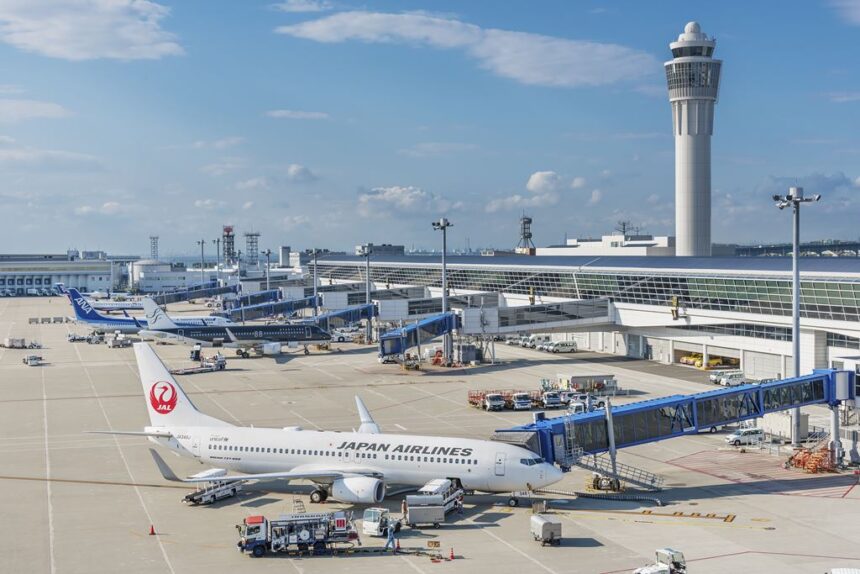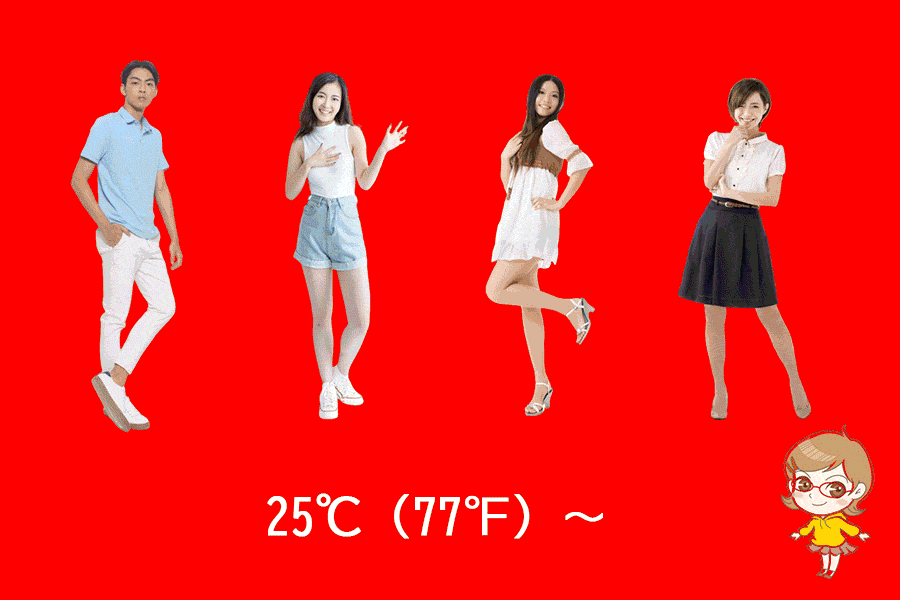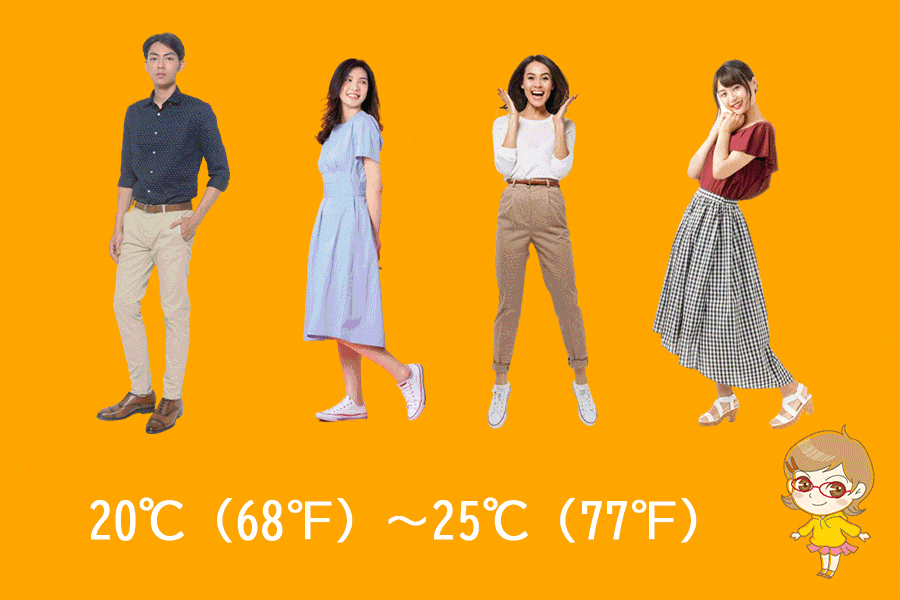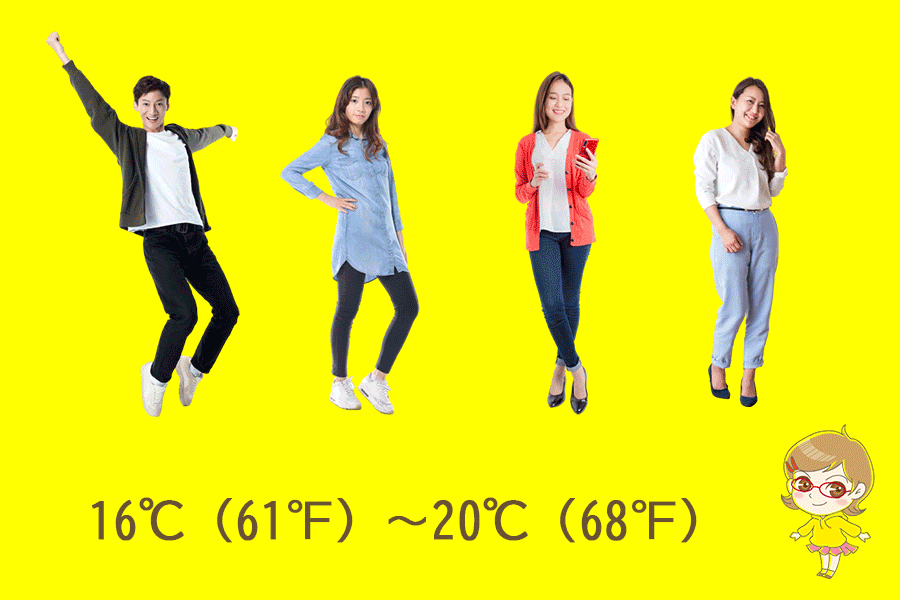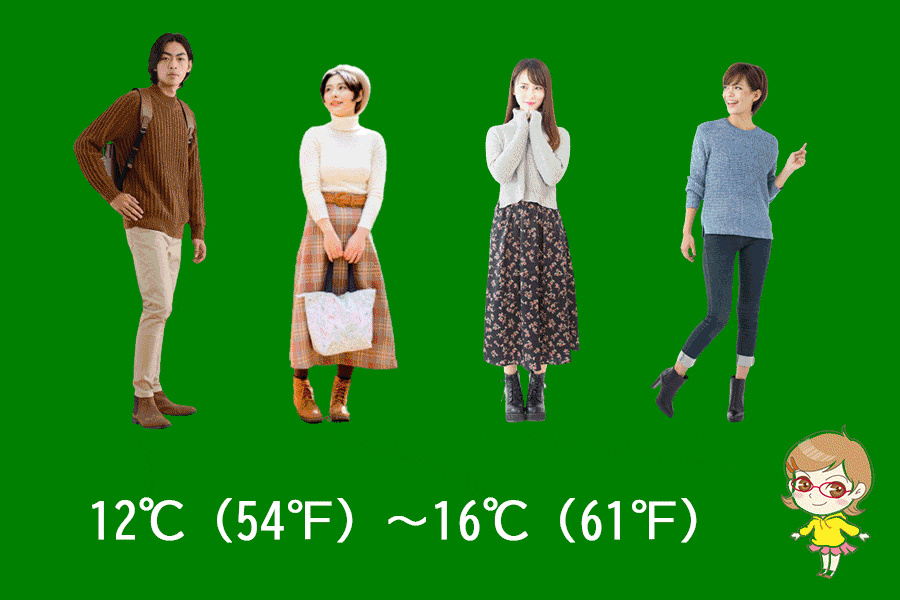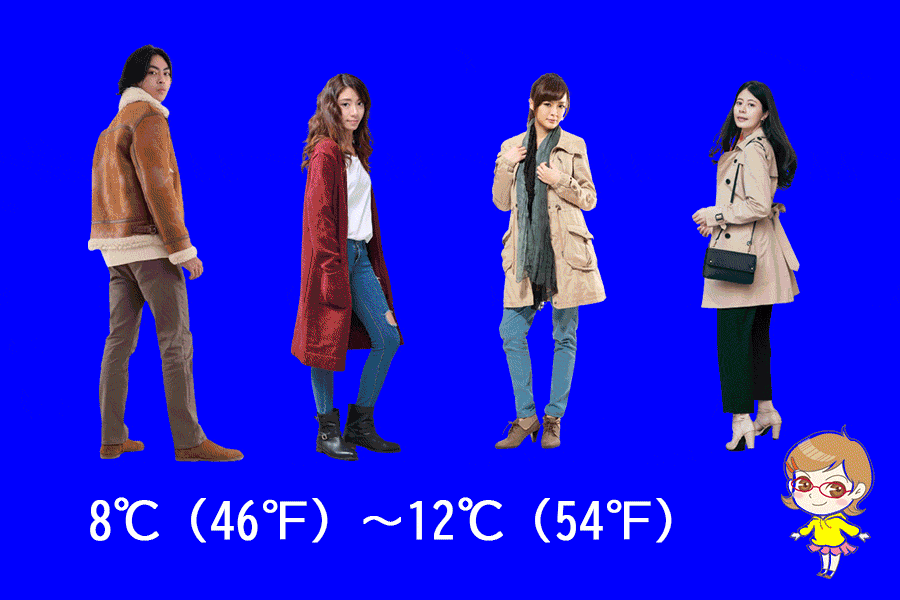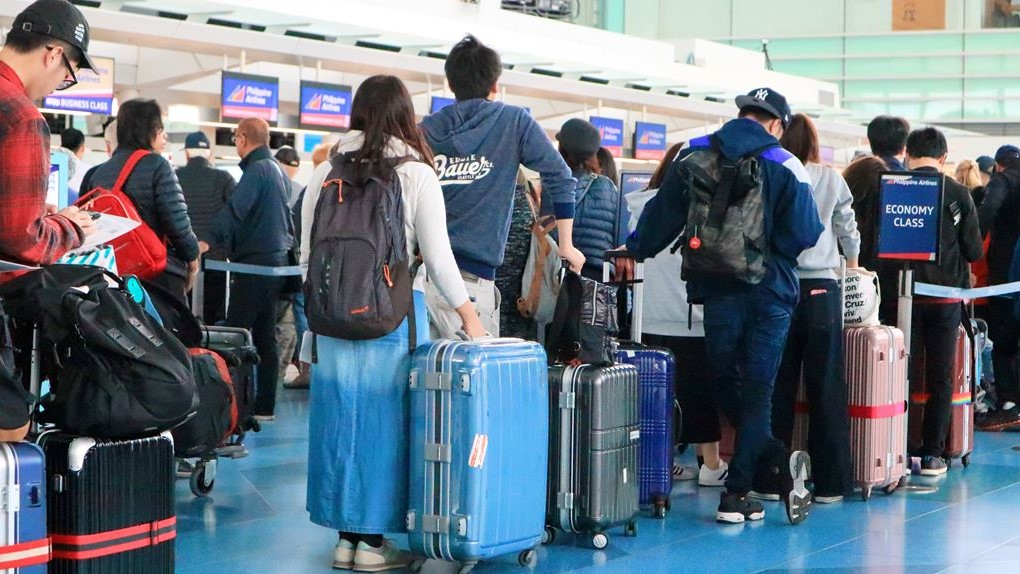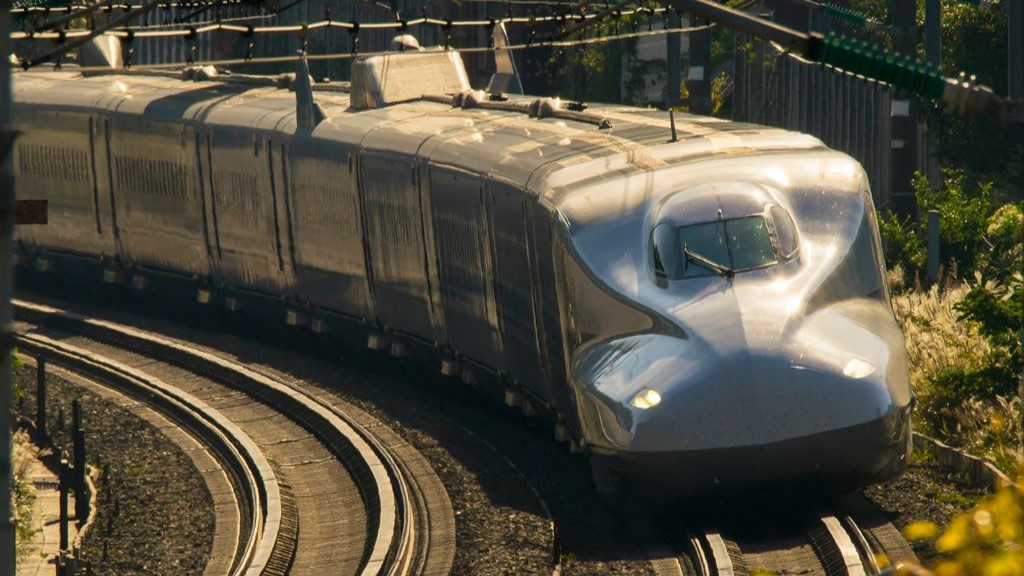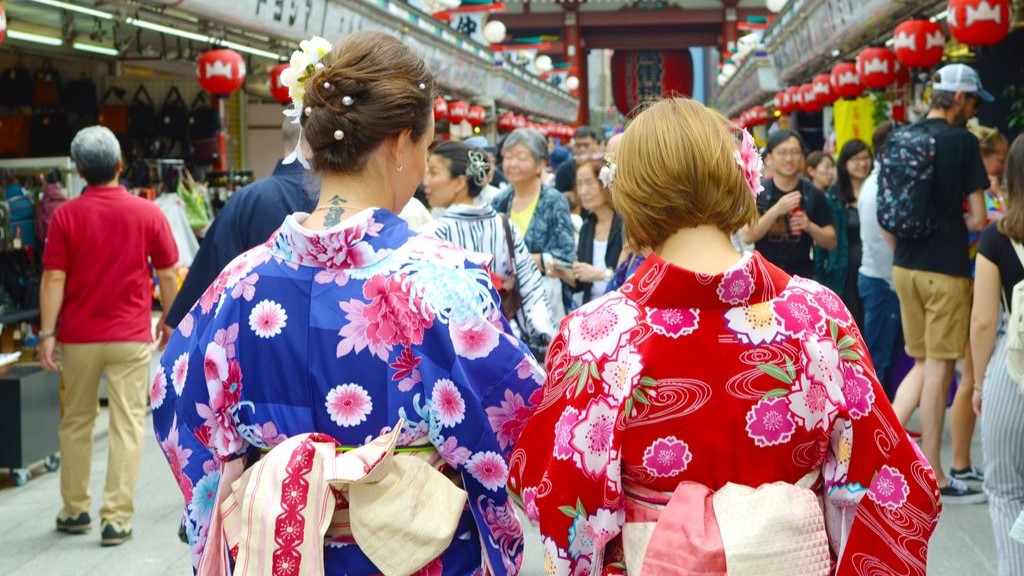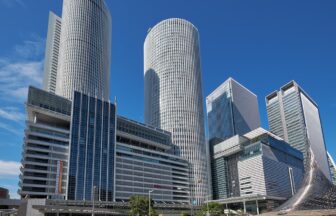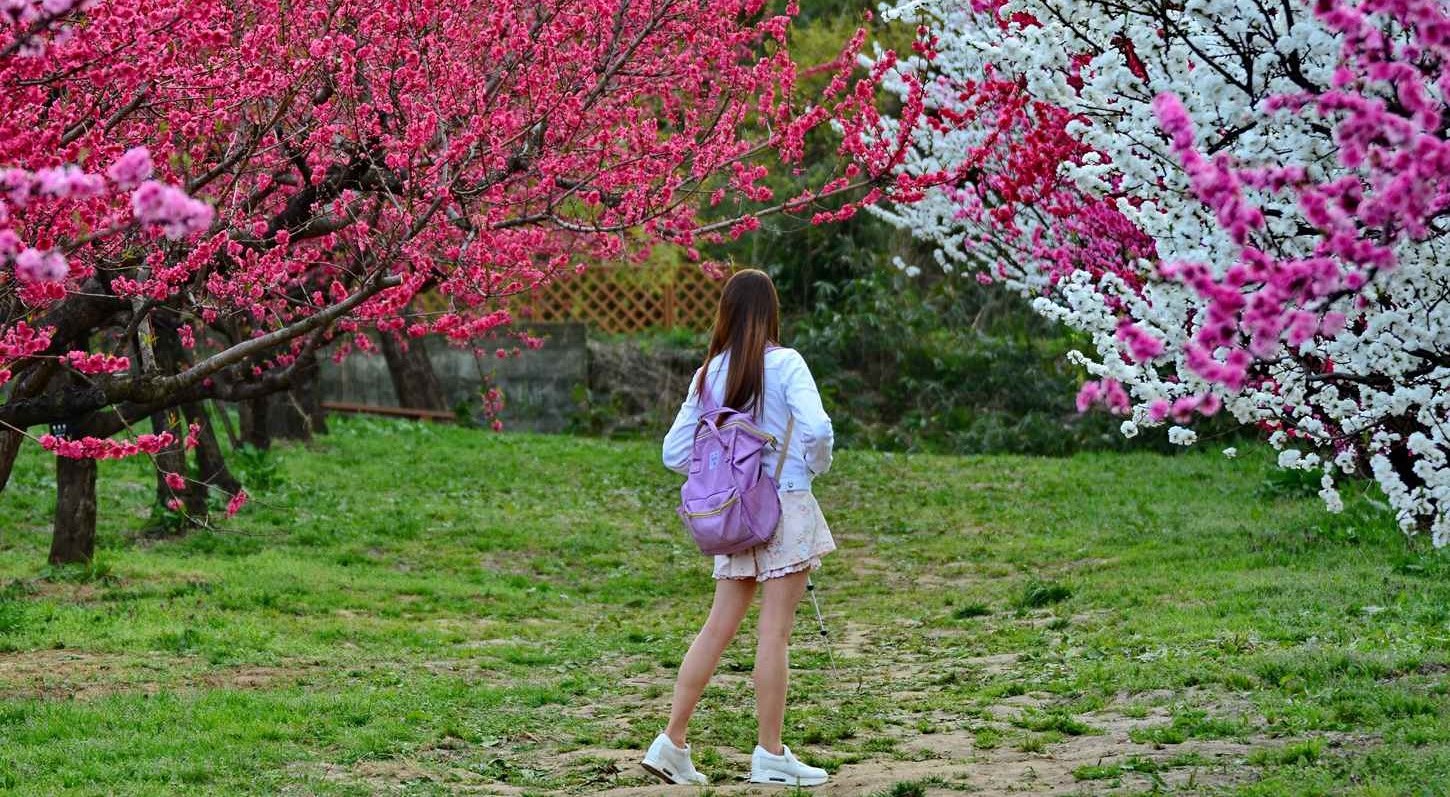1 Chome-1 Centrair, Tokoname, Aichi 479-0881 MAP
↓ Click to jump to the relevant section.
| Current Weather | Annual Weather | Tourist Attractions |
| Baggage Deposit | Hotels |
Current weather and clothing
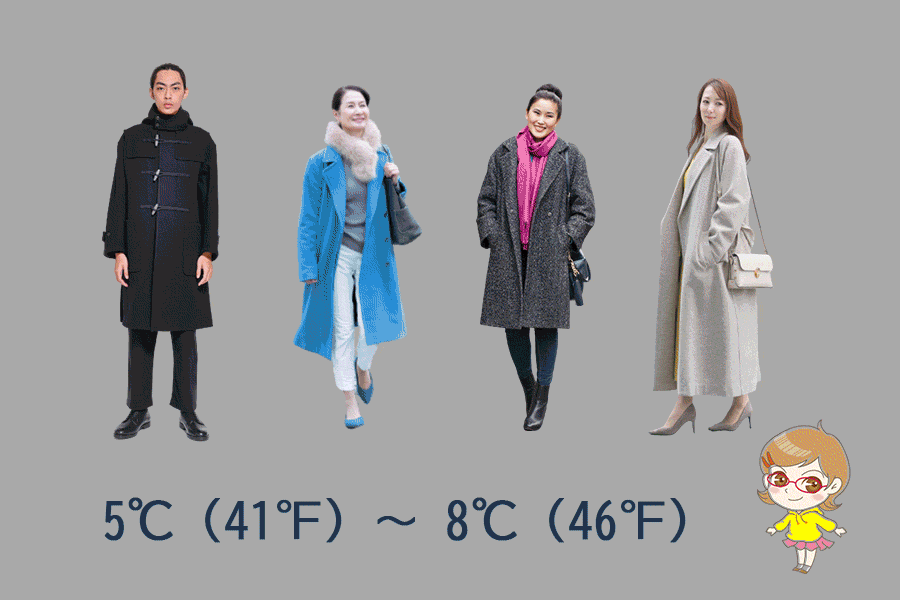
The weather information shown here is the information closest to the station in question. Please note that there may be slight differences.
Yearly temperature changes and recommended clothing
Clothing recommendations for each temperature range
When traveling in Japan with the following average temperatures, the recommended clothing is as follows:
Monthly changes in temperature, precipitation, and snowfall (1991~2020 average, Japan Meteorological Agency survey)
| Jan. | Feb. | Mar. | Apr. | May | Jun. | Jul. | Aug. | Sep. | Oct. | Nov. | Dec. | |
| temperature(°C) | 6.3 | 6.6 | 9.3 | 13.9 | 18.8 | 22.5 | 26.1 | 27.8 | 24.6 | 19.6 | 14.2 | 8.8 |
| precipitation(mm) | 42.1 | 61.3 | 95.1 | 112.8 | 130.4 | 166.4 | 164 | 88.3 | 177.8 | 179 | 60.8 | 53.4 |
| snowfall(cm) | — | — | — | — | — | — | — | — | — | — | — | — |
The Japan Meteorological Agency does not publish archived data on snowfall.
Winter
December
The average temperature in December is 8.8°C. The weather is usually cold. Tourists are advised to wear warm clothes such as thick jackets, sweaters, and scarves. Warm shoes and gloves are also recommended for maximum protection from the cold.
January
The average temperature in January is 6.3°C. It is usually cold and dry with occasional snow. Tourists are advised to wear warm clothes such as thick jackets, sweaters, and scarves. Warm shoes and gloves are also recommended for maximum protection from the cold.
February
In February, the average temperature is 6.6°C. Like January, the weather is usually cold with occasional snow. Travelers are advised to wear warm clothes such as thick jackets, sweaters, and scarves. Warm shoes and gloves are also recommended.
Spring
March
In March, the average temperature is 9.3°C. The weather is gradually getting warmer but still cold, especially in the early morning and at night. It is advisable to wear layered clothing such as long-sleeved shirts, sweaters, and light jackets. Scarves and gloves are also recommended.
April
In April, the average temperature is 13.9°C. The weather is generally mild but can be unpredictable with occasional rain. Light jackets or coats, long-sleeved shirts, and pants are recommended for travelers. It is also advisable to bring an umbrella or raincoat in case of rain.
May
The average temperature in May is 18.8°C. The weather is generally pleasant but can be unpredictable, with occasional rain. Lightweight clothing such as shorts and t-shirts, as well as light jackets, are recommended. It is also advisable to bring an umbrella or raincoat in case of rain.
Summer
June
In June, the average temperature is 22.5°C. It is the beginning of the summer season, and the weather is getting warmer. Lightweight clothing such as t-shirts, shorts, skirts, and sandals are recommended. It is also advisable to bring a light jacket in case the temperature drops at night. From early June to July 20 is the rainy season, so bring an umbrella or raincoat.
July
In July, the average temperature is 26.1°C. The weather is generally hot and humid. Tourists are advised to wear lightweight, breathable clothing such as t-shirts, shorts, and sandals. Hats and sunglasses are also recommended for protection from the sun.
August
In August, the average temperature is 27.8°C. It is the peak of the summer season, and the weather is hot and humid. Light clothing such as shorts, t-shirts, and sandals are recommended. Sunscreen, hats, and sunglasses are also recommended for sun protection.
Autumn
September
The average temperature in September is 24.6°C. It is still warm, but the weather is gradually getting cooler. Lightweight clothing such as t-shirts, shorts, and skirts are recommended. It is also advisable to bring a light jacket or sweater for cooler evenings.
October
In October, the average temperature is 19.6°C. The weather is generally mild, but it can be unpredictable, with occasional rain. Long-sleeved shirts, light jackets, and pants are recommended. It is also advisable to bring an umbrella or raincoat in case of rain.
November
In November, the average temperature is 14.2°C. The weather is gradually getting colder, and occasional rain and wind can occur. Travelers are advised to wear warm clothes such as thick jackets, sweaters, and scarves. Warm shoes and gloves are also recommended.
Recommended tourist destinations
Centrair Sky Deck
1-1 Centrair 4f, Tokoname 479-0881 Aichi Prefecture
The rooftop of the Terminal 1 Center Pier, jutting out toward the runway, is a 300-meter-long, all-wood outdoor deck.It is highly regarded as the observatory where you can feel airplanes closest to you in Japan. The distance from the tip of the Sky Deck to the runway is 300 meters, and the taxiway where airplanes travel to the runway is only about 50 meters, allowing visitors to see airplanes up close.
Flight of Dreams Flight Park
1-1 Centrair, Tokoname 479-0881 Aichi Prefecture
Flight of Dreams is a commercial complex that mainly displays the first Boeing 787. There are two areas: an “Exhibition Area” where visitors can enjoy learning about aviation and airports through videos and panels, and a “Kids Area” with playground equipment where they can play while feeling the power of a real airplane up close and personal. The “Kids Area” is popular as a facility where visitors can experience the scale and power of the first Boeing 787 up close and personal.
Tokoname City Pottery Footpath
3-8 Sakae-cho, Tokoname 479-0836 Aichi Prefecture
The pottery Footpath is a particularly popular tourist spot located on a small hill in the central city area. The starting point is the Ceramics Hall, a 5-10 minute walk from Tokoname Station.With a pamphlet obtained here in hand, enjoy a stroll through the maze of alleys, admiring the brick chimneys, kilns, black-walled factories, and slopes made of discarded pottery materials.
Machi-no-Eki Tokoname Pottery Yamatane
7-56 Okujo, Tokoname 479-0822 Aichi Prefecture
With the concept of “see, make, know, and buy”, “Machi-no-Eki Tokoname Pottery Yamatane” is a complex facility with the largest selection of Tokoname potteries available, three pottery classes, and sales of Tokoname’s specialties. The 3-meter-high giant beckoning cat at the entrance is a landmark.
RINKU Beach
2 Rinkucho, Tokoname 479-0882 Aichi Prefecture
This is an artificial beach built on the opposite shore of Centrair. Surrounded by breakwaters in an inner bay, it has very gentle waves and white sand, and is one of the largest artificial beaches in the Tokai area (approximately 630 m long).The collaboration of airplanes taking off and landing from the airport in front of you, the setting sun, and the sea is a view that can only be found here. The yellow “RINKU” monument is also a popular photo spot. You can also enjoy a panoramic view of the beach from the terrace seats at the “SEA AND SKY TERRACE” cafe.
INAX Live Museum
1-13 Okueicho, Tokoname 479-0823 Aichi Prefecture
It consists of six pavilions themed on ceramics, and is a participatory facility where visitors can see, learn, and experience manufacturing. The Tile Museum of the World is a popular photo spot. Tiles from around the world are on display, including an Islamic tiled dome ceiling, Victorian tiles from England, and tiles depicting the four seasons in Japan. There are also a variety of hands-on activities such as tile art, and a popular restaurant serving pizza baked in a wood-fired oven.
Okazaki Castle
561 Koseicho, Okazaki 444-0052 Aichi Prefecture
Okazaki Castle is famous as the birthplace of Tokugawa Ieyasu, and in 1959 the castle keep was reconstructed with three stories and five floors, and in 2006 it was selected as one of the 100 best castles in Japan. The surrounding area is maintained as a park and is a popular cherry blossom viewing spot in spring.
Daiju Temple
5-1 Hiromoto, Kamodacho, Okazaki 444-2121 Aichi Prefecture
Daiju Temple was built in 1475 as a memorial service for the war dead and is known as the family temple of the Matsudaira family and the Tokugawa shoguns.It is known as the family temple of the Matsudaira family and the Tokugawa shoguns. It houses the most beautiful pagoda in the Tokai region, a wooden statue of Tokugawa Ieyasu, and life-size tablets of successive Tokugawa shoguns, as well as barrier paintings that have become important cultural properties.
Hatchokura-dori
Okandori Hatchocho, Okazaki 444-0923 Aichi Prefecture
“Hatcho miso” is an essential part of Nagoya’s soul food. It got its name from the fact that it has been produced in Haccho Village (present-day Haccho-machi, Okazaki City) since the early Edo period (1603-1868). Two miso breweries, “Maruya” and “Kakukyu,” stand across the old Tokaido Highway, and visitors can tour their miso breweries.
Where to leave your luggage
There are a total of 10 coin lockers at Central Japan International Airport: two in the Access Plaza directly connected to the station, two on the 2nd floor, three on the 3rd floor, and one on the 4th floor of Terminal 1, plus one in the “Flight of Dreams” and one on the 1st floor outside Terminal 2.
Details of the locations can be obtained at the Information Center, which has information booths on each floor.
Recommended hotels and inns
Chubu International Airport Centrair Hotel
1-1 Centrair, Tokoname 479-0881 Aichi Prefecture
2-minutes walk from Chubu International Airport Centrair
Hotel class: 3
Hotel style: Mid-range , Business
Check Rates & Availability:
>> See on Tripadvisor
>> See on Expedia
Comfort Hotel Central International Airport
4-2-3 Centrair, Tokoname 479-0881 Aichi Prefecture
6-minutes walk from Chubu International Airport Centrair
Hotel class: 3
Hotel style: Modern
Check Rates & Availability:
>> See on Tripadvisor
>> See on Trip.com
>> See on Expedia
Toyoko Inn Chubu International Airport No.2
4-2-5 Centrair, Tokoname 479-0881 Aichi Prefecture
7-minutes walk from Chubu International Airport Centrair
Hotel class: –
Hotel style: Business
Check Rates & Availability:
>> See on Tripadvisor
>> See on Trip.com
>> See on Expedia
Four Points By Sheraton Nagoya Chubu International Airport
4-10-5 Centrair, Tokoname 479-0881 Aichi Prefecture
7-minutes walk from Chubu International Airport Centrair
Hotel class: 3
Hotel style: Business
Check Rates & Availability:
>> See on Tripadvisor
>> See on Trip.com
>> See on Expedia
Spring Sunny Hotel Nagoya Tokoname
3-174-1 Shinkaicho, Tokoname 479-0837 Aichi Prefecture
2.4mi/3.9km from Chubu International Airport Centrair
Hotel class: 3
Check Rates & Availability:
>> See on Tripadvisor
>> See on Trip.com
>> See on Expedia
Toyoko Inn Chubu International Airport No.1
4-2-5 Centrair, Tokoname 479-0881 Aichi Prefecture
6-minutes walk from Chubu International Airport Centrair
Hotel class: 2
Check Rates & Availability:
>> See on Tripadvisor
>> See on Trip.com
>> See on Expedia
J Hotel Rinku
3-2-1 Rinkucho, Tokoname 479-0882 Aichi Prefecture
1.6mi/2.6km from Chubu International Airport Centrair
Hotel class: 3
Hotel style: Business
Check Rates & Availability:
>> See on Tripadvisor
>> See on Trip.com
>> See on Expedia
Hotel Route-Inn Tokoname Ekimae
2-73 Koiehonmachi, Tokoname 479-0838 Aichi Prefecture
2.6mi/4.2km from Chubu International Airport Centrair
Hotel class: 3
Hotel style: Business
Check Rates & Availability:
>> See on Tripadvisor
>> See on Trip.com
>> See on Expedia
We support your itinerary planning!
Click the button to get an overview of hotel information and popular tourist routes from all over Japan featured on our site. We’ve included comprehensive details to aid in planning your trip, so please make use of it.
Comprehensive checklist before traveling to Japan
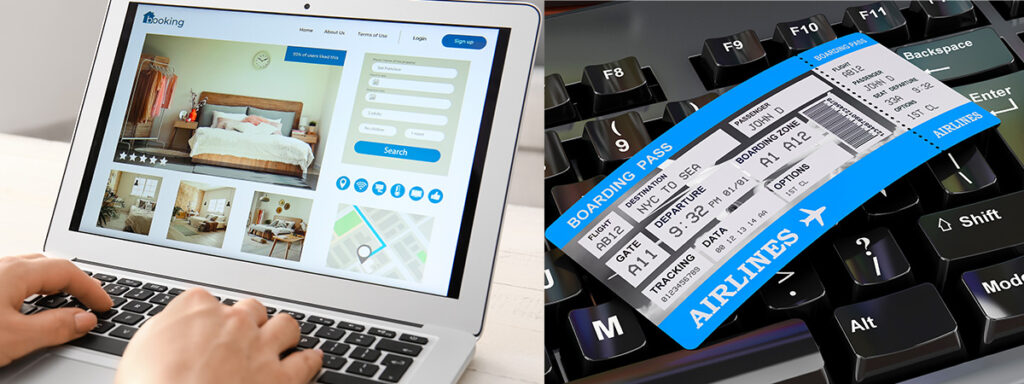
Book flights
Compare and purchase flight tickets
When planning your trip to Japan, it's advisable to start by researching flights several months in advance. Airlines often release promotional fares, especially during off-peak seasons. Use comparison sites like Skyscanner or KAYAK to get a sense of the price range. Be flexible with your travel dates if possible; flying mid-week might be cheaper than on weekends.
>> Visit Skyscanner's official website
>> Visit KAYAK's official website
Order Japan Rail Passes for each family member
Purchase your Japan Rail Pass before departure
The Japan Rail (JR) Pass offers unlimited travel on JR trains, making it a cost-effective option for tourists. However, it's only available to foreign tourists and must be purchased *before* you arrive in Japan. Determine the areas you plan to visit; if you're traveling extensively, a nationwide pass is beneficial, but if you're only exploring a specific region, consider regional JR passes. Children under 12 get a discounted pass, so ensure you order the correct type for each family member.
>>Visit Japan Rail Pass's website
Plan your attire for Japan
Check the weather at your destination on this site
Japanese weather varies significantly by season. In summer, it's hot and humid, so breathable clothes are essential. Winters, especially in the north, can be cold, requiring warm attire. If visiting during the rainy season (June to early July), pack a good umbrella and waterproof shoes. While Japan is generally casual, certain places like temples, shrines, or upscale restaurants may require modest and neat dressing.
Reserve a pocket Wi-Fi or SIM card
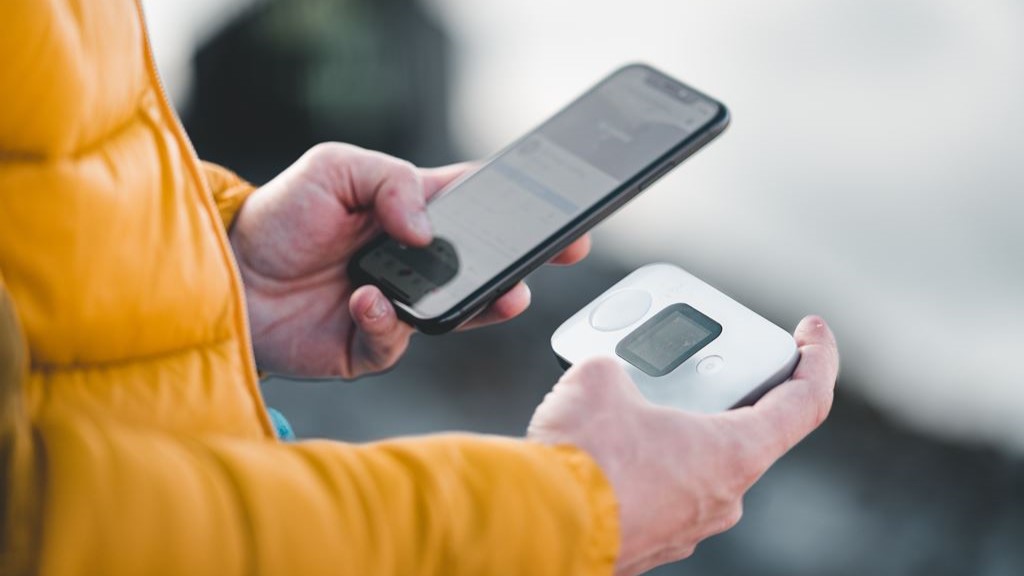
SIM card or pocket Wi-Fi is required
Beyond clothes, consider packing essentials like a universal power adapter (Japan uses Type A and B sockets), portable Wi-Fi or SIM card for internet access, and any necessary medications (with a copy of the prescription).
Which is better: a SIM card or pocket Wi-Fi?
When traveling in Japan, one essential to consider is securing internet access, especially given that many locations still don't offer free Wi-Fi. To ensure you can use your smartphone throughout your trip, you'll typically have three options: (1) a SIM card, (2) pocket Wi-Fi, or (3) the roaming service provided by your mobile company. Roaming services can be quite expensive, so we often recommend using a SIM card or pocket Wi-Fi. While SIM cards tend to be more affordable than pocket Wi-Fi, they can be trickier to set up. Pocket Wi-Fi, on the other hand, can be shared among several users, making it a favorable choice for families or groups.
▼SIM card
Advantages:
Relatively affordable.
Disadvantages:
Can be time-consuming to set up initially.
May have strict data limits.
▼Pocket Wi-Fi
Advantages:
Offers substantial data allowances.
A single device can be shared among multiple users.
Easily usable with PCs as well.
Disadvantages:
Typically more expensive.
Japan's representative services
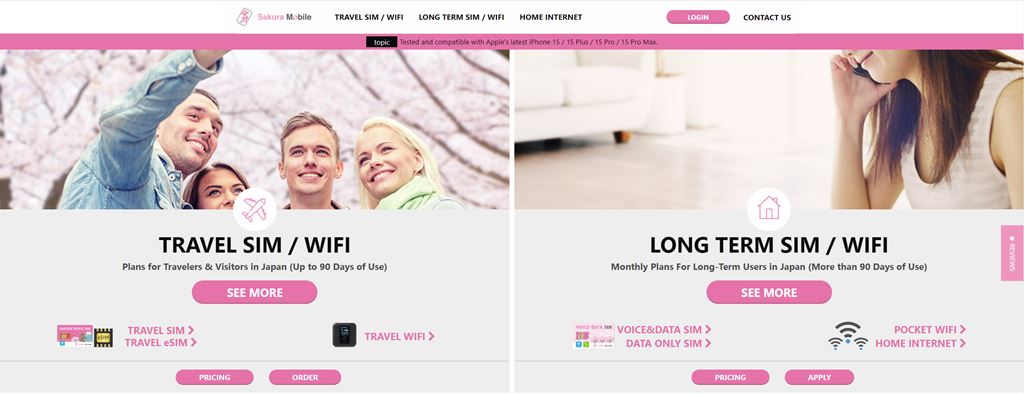
Sakura Mobile's website
▼SIM card
>>Visit Sakura Mobile's official website
>>Visit mobal's official website
▼pocket Wi-Fi
>>Visit Sakura Mobile's official website
>>Visit NINJA WiFi's official website
>>Visit Wi-Fi RENTAL Store's official website
Book local tours as needed
Pre-book your tour and have a great trip!
Local tours offer deep insights into Japan's culture and heritage. Websites like Viator or GetYourGuide offer a variety of tours, from traditional tea ceremonies to modern pop culture tours in Akihabara. Consider unique experiences like staying with monks on Mt. Koya or taking a cooking class to learn authentic Japanese dishes.
>>Visit Viator's official website
>>Visit GetYourGuide's official website
Purchase advance tickets for popular attractions
Make a reservation to avoid crowds
Attractions like Tokyo Disneyland, Universal Studios Japan, or the Studio Ghibli Museum often have long ticket queues. Buy tickets online in advance to save time. Some attractions also have timed entry, so check the specific time slots available and plan accordingly.
▼Tokyo Disney Resort
>>Visit Tokyo Disney Resort official website
>>Visit Viator's Tokyo Disneyland page
>>Visit Viator's Tokyo DisneySea page
>>Visit GetYourGuide's Tokyo Disneyland page
>>Visit GetYourGuide's Tokyo DisneySea page
▼Universal Studios Japan
>>Visit USJ official website
>>Visit Viator's USJ page
>>Visit GetYourGuide's USJ page
Buy travel insurance

insurance concept, health, life and travel insurance
It is important to be prepared for emergencies
While Japan is a safe country, travel insurance is crucial for unforeseen events like health emergencies, travel disruptions, or lost baggage. Ensure your policy covers medical expenses in Japan, as healthcare, though excellent, can be expensive.
Here we introduce online travel insurance services that are popular worldwide.
World Nomads: An online travel insurance service widely endorsed by travelers worldwide. They offer plans that cover adventurous activities and high-risk sports.
>>Visit World Nomads' official website
AIG Travel Guard: An insurance service available to travelers all over the world. They offer a wide range of options, including cancellation protection and emergency medical insurance.
>>Visit AIG Travel Guard's official website
Share your itinerary with emergency contacts
Organize your reservation information
Keep a digital and printed copy of your detailed itinerary, including hotel addresses, train schedules, and booked tours. Share this with a trusted family member or friend not traveling with you.

